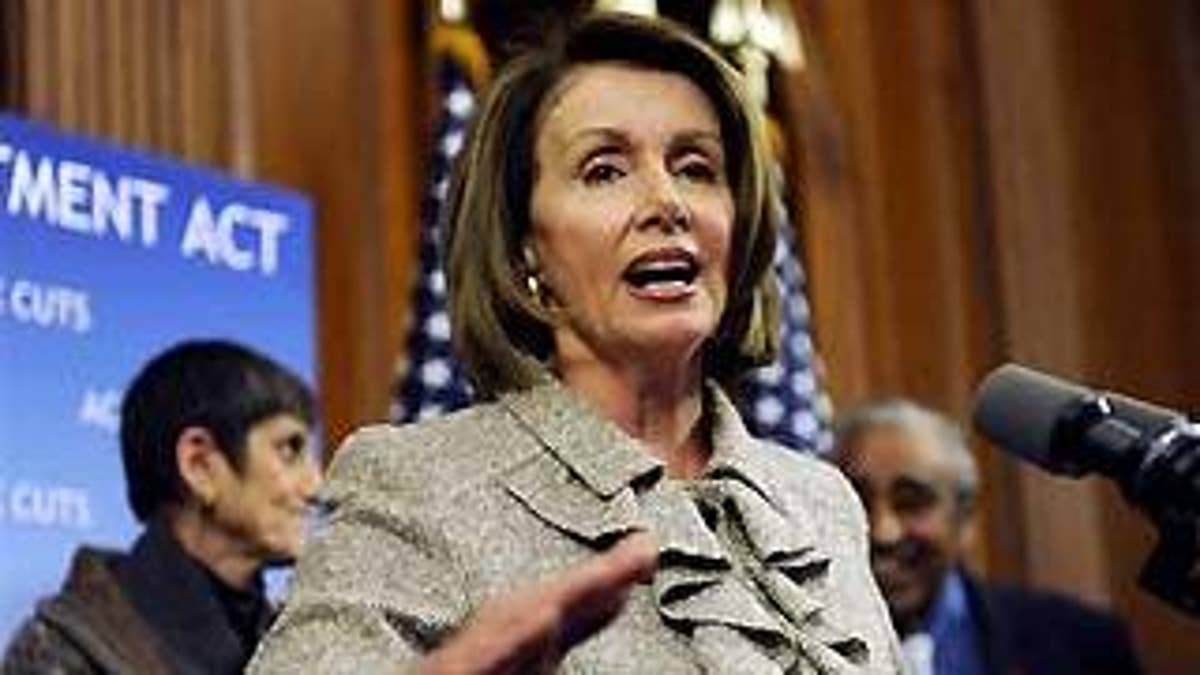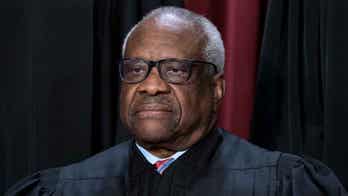
The House of Representatives approved an $819 billion economic stimulus package Wednesday, dealing the new Obama administration a legislative victory but also giving Republicans a chance to show their resolve as the opposition party.
The final vote was 244-188, mostly along party lines. All Republicans who were present voted against the bill. They were joined in their opposition by 11 Democrats.
The largely partisan vote undercut Obama's push for bipartisan support for the bill after he had argued that a new style of politics is needed in Washington.
Even so, passage of the House bill was a victory for Obama, who had visited Capitol Hill on Tuesday to push for his plan. The Senate, meanwhile, plans to significantly alter the package and raise the price tag.
The House legislation includes an estimated $544 billion in federal spending and $275 billion in tax cuts for individuals and businesses. It includes money for highway construction and mass transit.
Not everyone was convinced the legislation was the right move for the economic crisis.
Freshman Rep. Frank Kratovil, D-Md., called it "wasteful spending" while Rep. Roscoe Bartlett, R-Md., was applauded by fellow Republicans for standing up to Obama during a meeting.
"Mr. President, I think our obsessive borrowing has fully mortgaged my kids and my grandkids," Bartlett told Obama, according to statement from Bartlett's office. "Now we're working on mortgaging my two great-grandkids.
"Mr. President, I think it's more than a little bit selfish to try to solve our economic problems which we created by burdening future generations yet to be born," he added.
But ahead of the vote, Democratic congressional leaders brushed aside any concerns Republicans had, stressing their comfortable majority in the House.
"If there is somebody who is disgruntled, so be it. But we will have an overwhelming vote," House Speaker Nancy Pelosi said in a talk with reporters. She and more than a half-dozen other Democrats touted the bill and chided Republicans for pushing what they called the kind of failed policies that led to the economic crisis.
"The Republicans are talking about process. I think when you lose the argument on substance, on policy, what do you do? You talk about process and you talk about personality," she said.
Meanwhile, House Republican leaders were standing firm in their opposition to the stimulus plan. Just ahead of the House vote, they insisted that their own plan, focusing on tax relief, would create twice as many new jobs -- 6.2 million -- as the plan Obama is pushing, while costing about half as much.
But the House defeated their plan Wednesday with a vote of 286-170.
The House measure had been estimated to cost $825 billion, but the Congressional Budget Office updated the bill's price tag to $816 billion after accountants recalculated the cost. That total rose by $3 billion when the House approved on a voice vote a Democratic amendment for mass transit.
Earlier Wednesday, Obama tried to assure skeptics who say the package is too costly and contains too many measures that will not stimulate job growth.
He called for "bold and swift" action and said that the stimulus package before Congress will make critical investments in the private sector as well as the national infrastructure.
"We will invest in what works," Obama said, pledging to release information about how the money is spent.
Asked whether he was confident of getting Republican support, he replied only: "I'm confident we're going to get it passed."
His program is expansive -- and expensive. Republican support remained in doubt in the hours leading up to the vote.
Senate Republican leader Mitch McConnell also expressed skepticism about the bill pushed by House Democrats.
Senate committees were working on a separate version of the measure that enjoyed only slightly more support from Republicans. Congressional leaders have promised Obama they would send him the measure, which could be the single largest bill ever to go through Congress, by mid-February.
The president's first days in office have been dominated by his efforts to drum up bipartisan support for the sweeping plan to help pull the country out of the year-old recession that he inherited from President Bush. The increasingly troublesome economy -- and the federal government's response to it -- is the first major test of Obama's presidency. How he handles the volatile situation, and the effect of his stimulus package on the economy, could set the tone for his first year in office, if not his entire term.
The Associated Press and Capital News Service contributed to this report.




